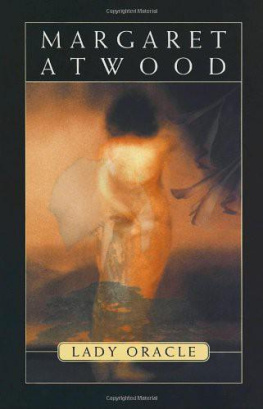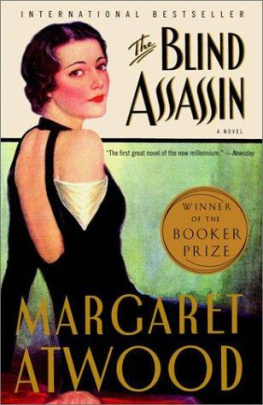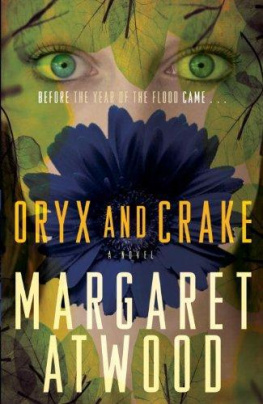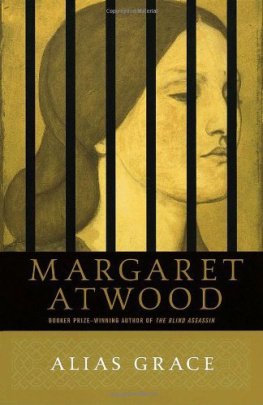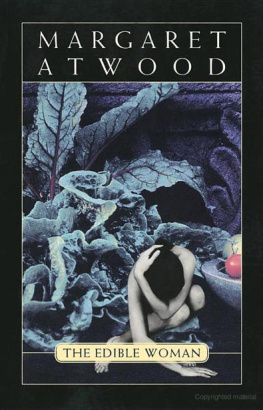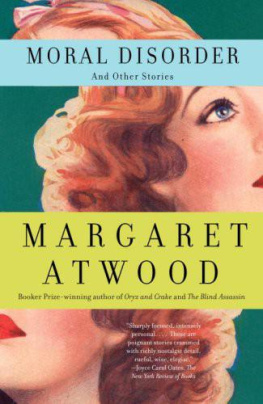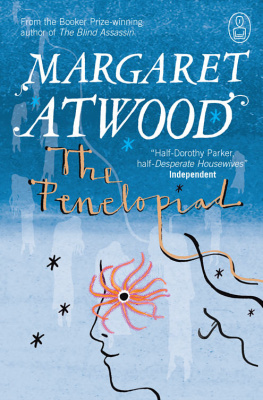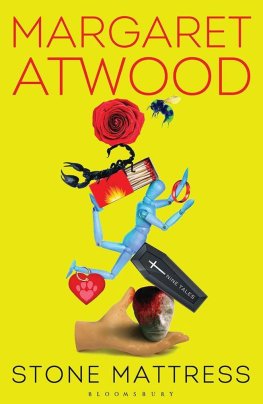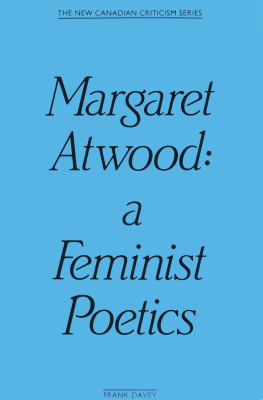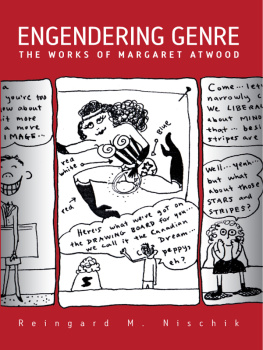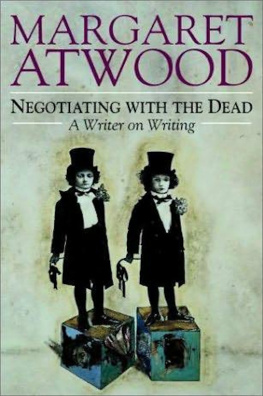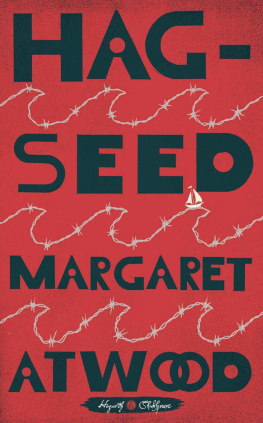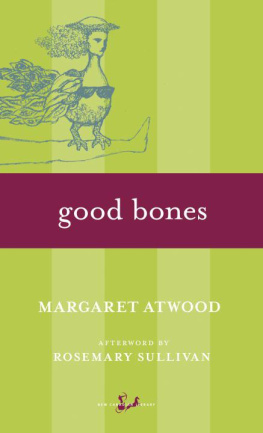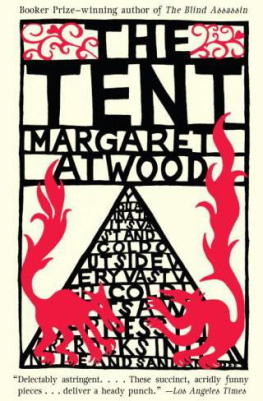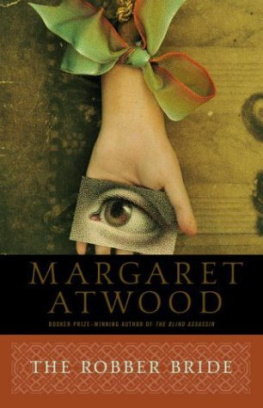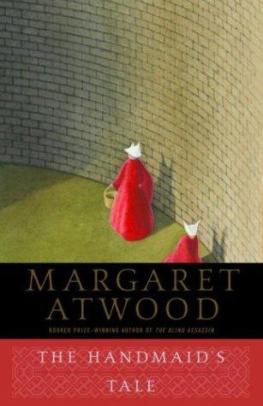Margaret Atwood - Lady Oracle
Here you can read online Margaret Atwood - Lady Oracle full text of the book (entire story) in english for free. Download pdf and epub, get meaning, cover and reviews about this ebook. year: 1998, publisher: Anchor, genre: Non-fiction. Description of the work, (preface) as well as reviews are available. Best literature library LitArk.com created for fans of good reading and offers a wide selection of genres:
Romance novel
Science fiction
Adventure
Detective
Science
History
Home and family
Prose
Art
Politics
Computer
Non-fiction
Religion
Business
Children
Humor
Choose a favorite category and find really read worthwhile books. Enjoy immersion in the world of imagination, feel the emotions of the characters or learn something new for yourself, make an fascinating discovery.
- Book:Lady Oracle
- Author:
- Publisher:Anchor
- Genre:
- Year:1998
- Rating:3 / 5
- Favourites:Add to favourites
- Your mark:
- 60
- 1
- 2
- 3
- 4
- 5
Lady Oracle: summary, description and annotation
We offer to read an annotation, description, summary or preface (depends on what the author of the book "Lady Oracle" wrote himself). If you haven't found the necessary information about the book — write in the comments, we will try to find it.
Lady Oracle — read online for free the complete book (whole text) full work
Below is the text of the book, divided by pages. System saving the place of the last page read, allows you to conveniently read the book "Lady Oracle" online for free, without having to search again every time where you left off. Put a bookmark, and you can go to the page where you finished reading at any time.
Font size:
Interval:
Bookmark:
BY MARGARET ATWOOD
FICTION
The Edible Woman (1969)
Surfacing (1972)
Lady Oracle (1976)
Dancing Girls (1977)
Life Before Man (1979)
Bodily Harm (1981)
Murder in the Dark (1983)
Bluebeards Egg (1983)
The Handmaids Tale (1985)
Cats Eye (1988)
Wilderness Tips (1991)
Good Bones (1992)
The Robber Bride (1993)
Alias Grace (1996)
FOR CHILDREN
Up in the Tree (1978)
Annas Pet [with Joyce Barkhouse] (1980)
For the Birds (1990)
Princess Prunella and the Purple Peanut (1995)
NON-FICTION
Survival: A Thematic Guide to Canadian Literature (1972)
Days of the Rebels 1815-1840 (1977)
Second Words (1982)
Strange Things: The Malevolent North in Canadian Literature (1996)
Two Solicitudes: Conversations [with Victor-Lvy Beaulieu] (1998)
POETRY
Double Persephone (1961)
The Circle Game (1966)
The Animals in That Country (1968)
The Journals of Susanna Moodie (1970)
Procedures for Underground (1970)
Power Politics (1971)
You Are Happy (1974)
Selected Poems (1976)
Two-Headed Poems (1978)
True Stories (1981)
Interlunar (1984)
Selected Poems II: Poems Selected and New 1976-1986 (1986)
Morning in the Burned House (1995)
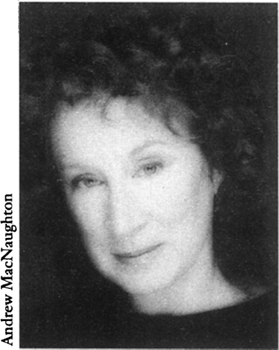
Margaret Atwood was born in Ottawa in 1939, and grew up in northern Quebec and Ontario, and later in Toronto. She has lived in numerous cities in Canada, the U.S., and Europe.
She is the author of more than twenty-five books novels, short stories, poetry, literary criticism, social history, and books for children.
Atwoods work is acclaimed internationally and has been published around the world. She has won many awards, including the Governor Generals Award, the Trillium Book Award, the City of Toronto Book Award, and the Canadian Authors Association Award. Her most recent novel, Alias Grace, won the prestigious Giller Prize in Canada and the Premio Mondello in Italy. She is the recipient of numerous honours, most recently The Sunday Times Award for Literary Excellence in the U.K., the National Arts Club Medal of Honor for Literature in the U.S., and Le Chevalier dans lOrdre des Arts et des Lettres in France.
Margaret Atwood lives in Toronto with novelist Graeme Gibson.
I planned my death carefully; unlike my life, which meandered along from one thing to another, despite my feeble attempts to control it. My life had a tendency to spread, to get flabby, to scroll and festoon like the frame of a baroque mirror, which came from following the line of least resistance. I wanted my death, by contrast, to be neat and simple, understated, even a little severe, like a Quaker church or the basic black dress with a single strand of pearls much praised by fashion magazines when I was fifteen. No trumpets, no megaphones, no spangles, no loose ends, this time. The trick was to disappear without a trace, leaving behind me the shadow of a corpse, a shadow everyone would mistake for solid reality. At first I thought Id managed it.
The day after I arrived in Terremoto I was sitting outside on the balcony. Id been intending to sunbathe, I had visions of myself as a Mediterranean splendor, golden-brown, striding with laughing teeth into an aqua sea, carefree at last, the past discarded; but then I remembered I had no suntan lotion (Maximum Protection: without it Id burn and freckle), so Id covered my shoulders and thighs with several of the landlords skimpy bath towels. I hadnt brought a bathing suit; bra and underpants would do, I thought, since the balcony was invisible from the road.
Id always been fond of balconies. I felt that if I could only manage to stand on one long enough, the right one, wearing a long white trailing gown, preferably during the first quarter of the moon, something would happen: music would sound, a shape would appear below, sinuous and dark, and climb towards me, while I leaned fearfully, hopefully, gracefully, against the wrought-iron railing and quivered. But this wasnt a very romantic balcony. It had a geometric railing like those on middle-income apartment buildings of the fifties, and the floor was poured concrete, already beginning to erode. It wasnt the kind of balcony a man would stand under playing a lute and yearning or clamber up bearing a rose in his teeth or a stiletto in his sleeve. Besides, it was only five feet off the ground. Any mysterious visitor I might have would be more likely to approach by the rough path leading down to the house from the street above, feet crunching on the cinders, roses or knives in his head only.
That at any rate would be Arthurs style, I thought; hed rather crunch than climb. If only we could go back to the way it had once been, before he had changed. I pictured him coming to retrieve me, winding up the hill in a rented Fiat which would have something wrong with it; he would tell me about this defect later, after wed thrown ourselves into each others arms. He would park, as close to the wall as possible. Before getting out he would check his face in the rearview mirror, adjusting the expression: he never liked to make a fool of himself, and he wouldnt be sure whether or not he was about to. He would unfold himself from the car, lock it so his scanty luggage could not be stolen, place the keys in an inside jacket pocket, peer left and right, and then with that curious ducking motion of the head, as if he were dodging a thrown stone or a low doorway, hed sneak past the rusty gate and start cautiously down the path. He was usually stopped at international borders. It was because he looked so furtive; furtive but correct, like a spy.
At the sight of lanky Arthur descending towards me, uncertain, stony-faced, rescue-minded, in his uncomfortable shoes and well-aged cotton underwear, not knowing whether I would really be there or not, I began to cry. I closed my eyes: there in front of me, across an immense stretch of blue which I recognized as the Atlantic Ocean, was everyone I had left on the other side. On a beach, of course; Id seen a lot of Fellini movies. The wind rippled their hair, they smiled and waved and called to me, though of course I couldnt hear the words. Arthur was the nearest; behind him was the Royal Porcupine, otherwise known as Chuck Brewer, in his long pretentious cape; then Sam and Marlene and the others. Leda Sprott fluttered like a bedsheet off to one side, and I could see Fraser Buchanans leather-patched elbow sticking out from where he lurked behind a seaside bush. Further back, my mother, wearing a navy-blue suit and a white hat, my father indistinct by her side; and my Aunt Lou. Aunt Lou was the only one who wasnt looking at me. She was marching along the beach, taking deep breaths and admiring the waves and stopping every now and then to empty the sand out of her shoes. Finally she took them off, and continued, in fox fur, feathered hat and stocking feet, towards a distant hot-dog and orangeade stand that beckoned to her from the horizon like a tacky mirage.
But I was wrong about the rest of them. They were smiling and waving at each other, not at me. Could it be that the Spiritualists were wrong and the dead werent interested in the living after all? Though some of them were still alive, and I was the one who was supposed to be dead; they should have been mourning but instead they seemed quite cheerful. It wasnt fair. I tried to will something ominous onto their beach a colossal stone head, a collapsing horse but with no result. In fact it was less like a Fellini movie than that Walt Disney film I saw when I was eight, about a whale who wanted to sing at the Metropolitan Opera. He approached a ship and sang arias, but the sailors harpooned him, and each of his voices left his body in a different-colored soul and floated up towards the sun, still singing.
Next pageFont size:
Interval:
Bookmark:
Similar books «Lady Oracle»
Look at similar books to Lady Oracle. We have selected literature similar in name and meaning in the hope of providing readers with more options to find new, interesting, not yet read works.
Discussion, reviews of the book Lady Oracle and just readers' own opinions. Leave your comments, write what you think about the work, its meaning or the main characters. Specify what exactly you liked and what you didn't like, and why you think so.

